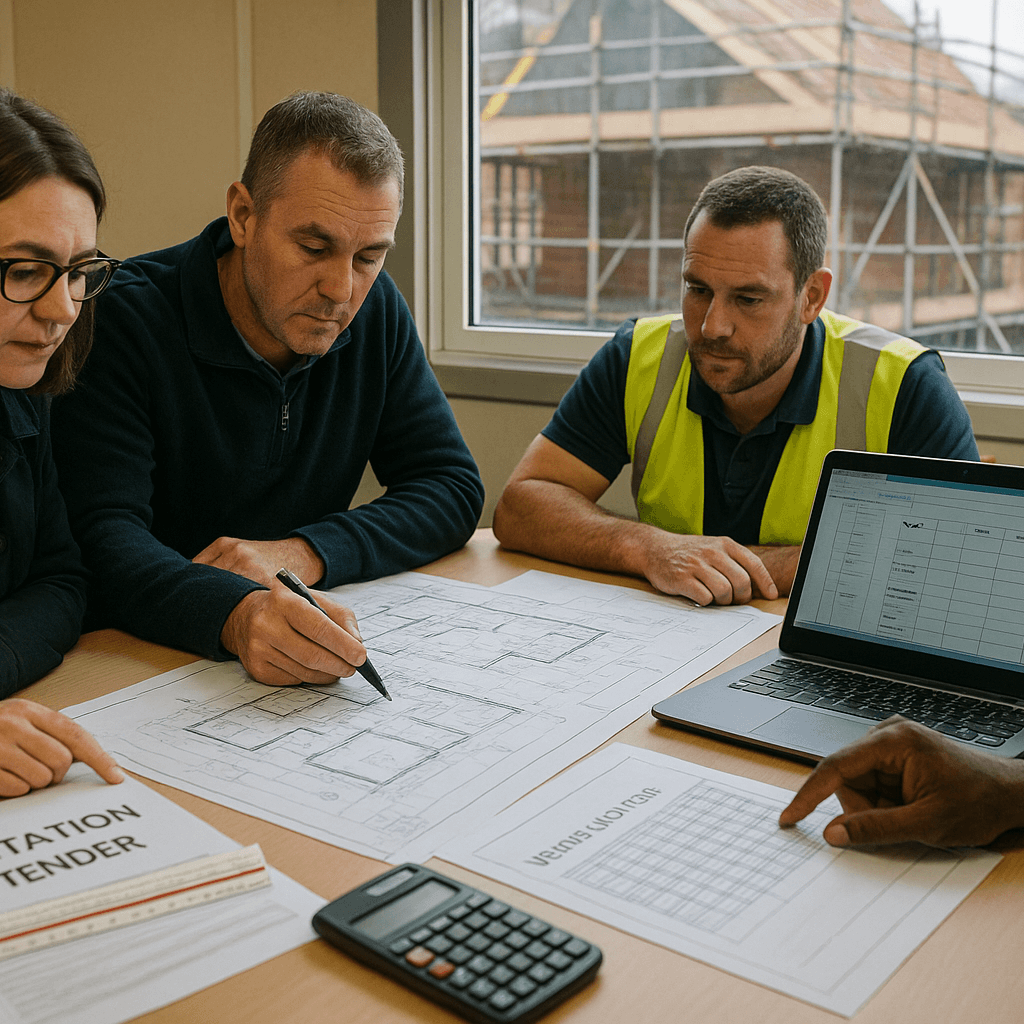The buzz about sustainability has transformed into a vital aspect of the construction industry. With increasing environmental worries and tougher regulations, it’s critical for quantity surveyors to embrace sustainable practices. This blog delves into the pivotal role of quantity surveyors in endorsing sustainability, explores the benefits, and provides actionable guidance for integrating eco-friendly practices into their operations.
The Critical Role of Quantity Surveyors in Promoting Sustainability
Quantity surveyors are at the forefront of ensuring that construction projects are not only economically viable but also environmentally considerate. Here’s how they do it:
- Cost Planning and Management: By integrating sustainable materials and technologies in cost plans, quantity surveyors balance upfront costs against future savings.
- Lifecycle Cost Analysis: This involves evaluating the overall cost-effectiveness of using sustainable solutions over the lifespan of a project.
- Procurement: Opting for suppliers and contractors who uphold sustainable practices ensures these standards permeate the entire supply chain.
Benefits of Embracing Sustainable Practices
- Reduced Environmental Impact: Sustainable practices help in lowering the carbon footprint of projects, enhancing recycling efforts, and using eco-friendlier materials.
- Cost Efficiency: While initial costs may be higher, sustainable materials lead to lower energy and maintenance expenses over time.
- Regulatory Compliance: Following sustainable methods ensures adherence to environmental laws and regulations, helping avoid fines and legal issues.
- Marketability: Projects prioritising sustainability attract more clients and investors who value environmental stewardship.
- Enhanced Reputation: A commitment to sustainable practices can significantly bolster a company’s image and build client loyalty.
Implementing Sustainable Practices in Quantity Surveying
To ensure the successful adoption of sustainable practices in quantity surveying, consider the following steps:
- Education and Training: Keep the team well-informed about the latest in sustainable construction through continuous education.
- Sustainability Goals: Set practical and attainable sustainability targets for each project that align with wider business objectives.
- Sustainability Assessments: Assess the environmental impact at the planning stage to integrate sustainability efficiently.
- Develop a Sustainability Plan: A comprehensive plan should outline sustainability strategies from project initiation to completion.
- Monitor and Adjust: Regularly evaluate the effectiveness of implemented practices and make necessary adjustments.
- Continuous Improvement: Post-project reviews help in understanding what worked and what didn’t, providing insights for future projects.
Challenges to Sustainable Quantity Surveying
Despite the benefits, several challenges persist in integrating sustainability in quantity surveying:
- Higher Initial Investments: Sustainable solutions often come with higher initial costs but focusing on long-term savings can mitigate these.
- Awareness and Resistance: Educational initiatives and showcasing proven results can help in overcoming resistance to change.
- Regulatory Navigation: Staying updated with the latest environmental regulations is crucial to ensure compliance.
- Supply Chain Compliance: Ensuring all partners in the supply chain uphold sustainability commitments is essential for consistency.
Conclusion
As the demand for sustainable construction grows, quantity surveyors play a critical role in integrating eco-friendly practices into their projects. By understanding the benefits and challenges and by taking actionable steps towards sustainability, they can make a significant positive impact on both the environment and their business.
FAQs
1. What roles do quantity surveyors play in sustainability?
They implement eco-friendly materials, perform lifecycle cost analyses, and ensure sustainable procurement.
2. What are the benefits of sustainable practices in construction?
These include reduced environmental impact, cost savings, regulatory compliance, and enhanced marketability and company reputation.
3. What key practices should be followed for sustainable quantity surveying?
Important practices include using sustainable materials, minimizing waste, enhancing energy efficiency, and practicing thorough lifecycle cost analyses.
4. How can sustainable practices be effectively implemented?
By educating teams, setting clear goals, assessing impact, planning thoroughly, monitoring progress, and continually improving.
5. What challenges might arise in sustainable quantity surveying?
Obstacles include higher costs initially, regulatory hurdles, and ensuring supply chain compliance.











